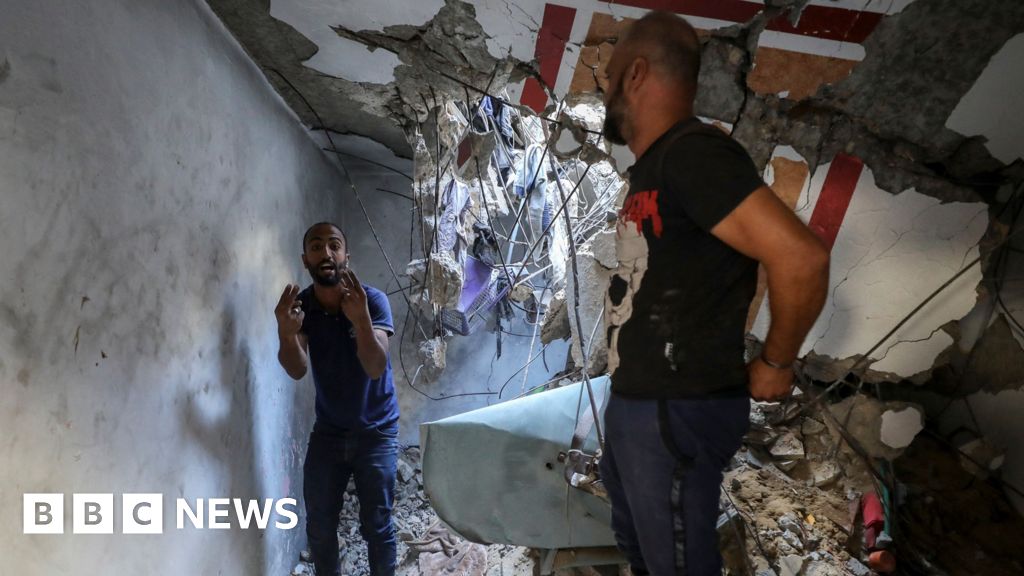Many of the casualties are taken to Jabalia’s Kamal Adwan hospital. It’s director, Dr Hussam Abu Safiyyah, told me by phone that his hospital faced a dire humanitarian crisis and accused Israel of imposing collective punishment.
“We urge the world to intervene and impose their humanity over the Israeli army, to open humanitarian corridors that allow the entrance of medical tools, delegations, fuel, and food so that we can provide humanitarian services for the children, newborn babies, and patients who are in need,” he said.
The United States has accused Israel of refusing or impeding up to 90% of aid to northern Gaza in the last month – and threatened to cut arms shipments unless there is change.
Israel says it is taking American concerns seriously and is “addressing the issue”.
International journalists from media organisations, including the BBC, are not given independent access to Gaza by Israel.
The IDF says it only targets “terror cells” and released a video of what it said was Hamas firing from within a clinic in Jabalia. The army also said they’d found weapons and boobytraps in a medical facility.
In the video an officer, his face blurred, points to booby traps and weapons and speaks to the camera: “Everything here is a cynical exploitation of the civilian population, inside a clinic, inside a civilian compound. We will pursue these terrorists and find them in every corner.”
In Jabalia, a heavily pregnant woman is sitting in the dust outside a house. The Civil Defence workers arrive and help her onto a stretcher. Her father is there and tells her, “You are going to be ok. You are going to give birth, my heart.”
Then a shell explodes nearby. The small group rushes to the ambulance and escapes.
Every day they plead for peace in Jabalia. For food, and medicine, for schools to open.
They plead, but know their voices cannot make it stop.
With additional reporting by Haneen Abdeen and Alice Doyard

